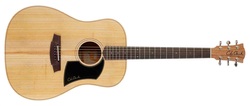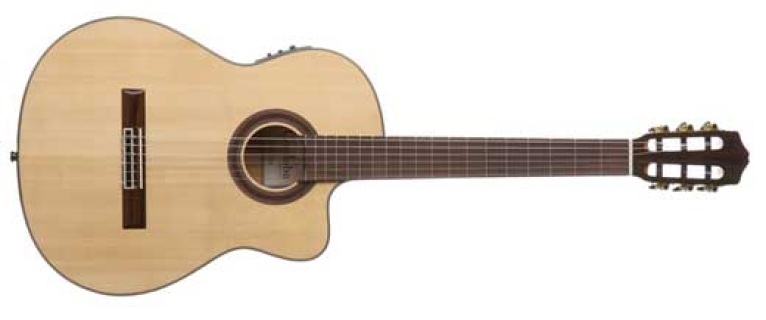LATEST NEWS:
Sorry, but I'm not taking any new students right now. If you have any questions or would like to contact me, you can go to the 'Contact" page and send me an email. Thanks!... Jose
Tuition
I offer guitar tuition to novices or near-novices. These lessons are focussed on the basics and getting you to a level of independence where you can go away and develop your own style.
Lesson format
Lessons are based on one hour blocks at your home/club house/other venue. Lesson cost will include local travel, so if you are in Dandenong, Berwick, Cranbourne or Pakenham - no problem. If you live outside of these areas, contact me and we'll see if we can arrange something.
What to expect
You will need:
* Your own guitar (if you don't have one I can provide a guitar on the first couple of lessons, free)
* A quiet space with room to swing a guitar around (lounge room is fine)
Ideally you should also have:
* music stand (alternatively, a coffee table will do)
* tuner (got to keep your instrument sounding good)
* pen and paper (an exercise book will be fine for notes)
* a beginners "how to play guitar" book (there are plenty out there and it will have all the basics already written down for you)
* an idea of what kind of songs you like (so we can play to your taste)
* guitar strap
* guitar picks/plectrum
* capo (useful to match voices/recordings)
You can expect that I will arrive for lessons on time with full focus on your musical development. I will expect that you notify me if there any changes to scheduled appointments and that you spend some time between lessons practising. I have public liability insurance as a instructor/performer but do expect a safe and relaxed lesson environment.
It would help if you like my preferred genres but that isn't critical. I have a preference for finger-picking and flat-picking. All guitar technique share common beginnings.
* Your own guitar (if you don't have one I can provide a guitar on the first couple of lessons, free)
* A quiet space with room to swing a guitar around (lounge room is fine)
Ideally you should also have:
* music stand (alternatively, a coffee table will do)
* tuner (got to keep your instrument sounding good)
* pen and paper (an exercise book will be fine for notes)
* a beginners "how to play guitar" book (there are plenty out there and it will have all the basics already written down for you)
* an idea of what kind of songs you like (so we can play to your taste)
* guitar strap
* guitar picks/plectrum
* capo (useful to match voices/recordings)
You can expect that I will arrive for lessons on time with full focus on your musical development. I will expect that you notify me if there any changes to scheduled appointments and that you spend some time between lessons practising. I have public liability insurance as a instructor/performer but do expect a safe and relaxed lesson environment.
It would help if you like my preferred genres but that isn't critical. I have a preference for finger-picking and flat-picking. All guitar technique share common beginnings.
Recommendations
I won't hide from you two main secrets of success (what I think anyway) in learning the guitar:
1. Practise. A lot of your development will happen out of earshot from any guitar tutor or audience, it will happen when you go to your bedroom, grab the guitar and play it. After a while muscle memory will develop and it will get easier. It'll also happen when you get out there and start jamming with others or when performing. Basically - you've got to use it or lose it!
2. Enjoy. If you don't like doing something, you won't do it. Try and learn a few songs that you like and even if it doesn't sound quite like your favourite band or artist, at least you will have something to enjoy and a project to work on.
Don't rely on the lessons entirely, use them to support your development:
1. Use blocks of lessons, say once a week for a month to give you material to work on and then take a break from that to focus on your own thing. After that period repeat the process again and you'll find that you will start to make real progress.
2. Find some friends to play music with. You can help and encourage each other. Also if you have the lessons together it'll be cheaper.
3. If you have three other friends who are prepared to spend one hour a week for four weeks then each lesson will only cost you $15 - a bargain! Any more than six students really restricts the amount of attention that can be given, so no more than this please.
Use a playable instrument:
1. Buy an instrument where the action isn't too high (height between strings and guitar) and the size/shape fits you. For smaller people, e.g. children, you may want a 3/4 size guitar. Nothing kills progress like having an instrument that is physically difficult to play.
2. Your goal may be to master the electric guitar but consider having a nylon string accoustic guitar. I have to admit that I have a bias to this type of guitar but even the best electric guitar players all own a classical guitar. It means that you can practise anywhere (no power required) and the thicker and lower tension strings will be less painful to get used to, compared to a steel string guitar.
Work on development of your "ears" and musical intuition rather than pure reliance on sheet music including tabs:
1. The best musicians I know have a developed "ear" for music which allows them to play the right chords at the right time with others or on their own. It's hard to teach but is important in order to get a good grasp of pitch, volume, rhythym and timing.
2. Be familiar with some favourite songs and be able to play along with them. These standards can be used as a measuring stick to guide your playing. Are you keeping to the rhythym or speeding up? How many bars for the intro?
3. If you can, sing along with your guitar playing. Don't worry about your voice quality! Singing will help you remember the song as you are strumming the chords and encourage you to maintain correct timing and develop musical expression. It is optional as a guitarist but you'll find that singing will help you develop more fully in expressing that special something in those songs you love. Who knows you might get to like it too!
1. Practise. A lot of your development will happen out of earshot from any guitar tutor or audience, it will happen when you go to your bedroom, grab the guitar and play it. After a while muscle memory will develop and it will get easier. It'll also happen when you get out there and start jamming with others or when performing. Basically - you've got to use it or lose it!
2. Enjoy. If you don't like doing something, you won't do it. Try and learn a few songs that you like and even if it doesn't sound quite like your favourite band or artist, at least you will have something to enjoy and a project to work on.
Don't rely on the lessons entirely, use them to support your development:
1. Use blocks of lessons, say once a week for a month to give you material to work on and then take a break from that to focus on your own thing. After that period repeat the process again and you'll find that you will start to make real progress.
2. Find some friends to play music with. You can help and encourage each other. Also if you have the lessons together it'll be cheaper.
3. If you have three other friends who are prepared to spend one hour a week for four weeks then each lesson will only cost you $15 - a bargain! Any more than six students really restricts the amount of attention that can be given, so no more than this please.
Use a playable instrument:
1. Buy an instrument where the action isn't too high (height between strings and guitar) and the size/shape fits you. For smaller people, e.g. children, you may want a 3/4 size guitar. Nothing kills progress like having an instrument that is physically difficult to play.
2. Your goal may be to master the electric guitar but consider having a nylon string accoustic guitar. I have to admit that I have a bias to this type of guitar but even the best electric guitar players all own a classical guitar. It means that you can practise anywhere (no power required) and the thicker and lower tension strings will be less painful to get used to, compared to a steel string guitar.
Work on development of your "ears" and musical intuition rather than pure reliance on sheet music including tabs:
1. The best musicians I know have a developed "ear" for music which allows them to play the right chords at the right time with others or on their own. It's hard to teach but is important in order to get a good grasp of pitch, volume, rhythym and timing.
2. Be familiar with some favourite songs and be able to play along with them. These standards can be used as a measuring stick to guide your playing. Are you keeping to the rhythym or speeding up? How many bars for the intro?
3. If you can, sing along with your guitar playing. Don't worry about your voice quality! Singing will help you remember the song as you are strumming the chords and encourage you to maintain correct timing and develop musical expression. It is optional as a guitarist but you'll find that singing will help you develop more fully in expressing that special something in those songs you love. Who knows you might get to like it too!


